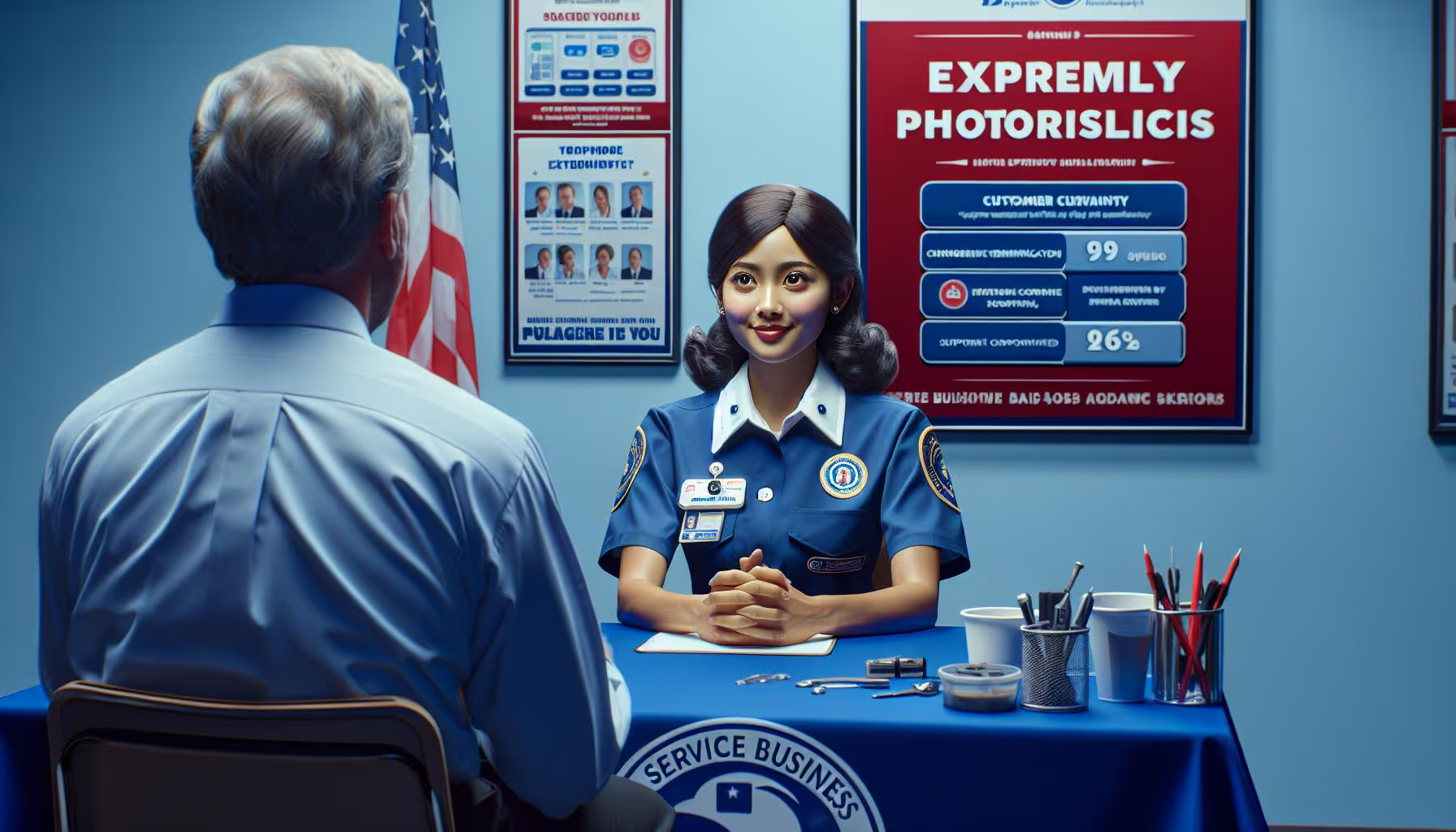Key Takeaways
- Exceptional Customer Service is Crucial: Providing outstanding service is key to customer loyalty, with 78% of customers favoring brands that consistently excel in this area.
- Soft Skills Training: Technicians should be trained in essential soft skills like active listening, clear communication, and empathy to enhance customer experiences.
- Implement Role-Playing Exercises: Using role-playing scenarios in training allows technicians to practice responding to various customer situations, improving their problem-solving skills.
- Utilize Technology for Efficiency: Field service management software and mobile workforce management tools can streamline communication and enhance overall service delivery.
- Establish Standard Operating Procedures (SOPs): SOPs guide technicians in best practices for customer engagement, ensuring consistency in service quality.
- Continuous Improvement through Feedback: Gathering feedback and measuring performance helps identify growth areas, allowing for refined training and operational enhancements.
In today’s competitive landscape, exceptional customer service can set us apart from the rest. Studies show that 78% of customers will choose to stay loyal to a brand that consistently delivers outstanding service. This statistic highlights the need for effective training techniques that empower our technicians to provide that level of service on every job.
By mastering the right training methods, we can equip our teams with the skills and confidence they need to engage customers positively. From active listening to problem-solving strategies, each technique plays a vital role in creating memorable customer experiences. Let’s explore how we can transform our training approach and ensure our technicians shine in every interaction.
Understanding Customer Service in the Technical Field
Exceptional customer service is a vital component in the technical field. It directly impacts customer satisfaction and loyalty. When technicians deliver outstanding service, they foster trust and encourage repeat business.
Importance of Exceptional Customer Service
Exceptional customer service drives brand loyalty in our industry. A survey shows that 78% of customers stick with businesses that offer top-notch service. Technicians play a crucial role in this experience. They serve as the first point of contact and shape customer perceptions. With tools like field service management software or technician scheduling tools, we streamline communication, making interactions smoother. Automated field service solutions help technicians resolve issues faster, leading to happier customers. How do we empower our team to push boundaries in service delivery?
Creating memorable customer experiences hinges on mastering key skills. We focus on active listening, clear communication, and problem-solving. For instance, imagine a technician resolving a frustrating issue promptly. That’s an experience customers are likely to share, and word-of-mouth remains powerful. Let’s think, how often do we talk about outstanding service we’ve received?
Common Challenges Technicians Face
Technicians encounter various hurdles that can impact their service delivery. Time constraints often mean juggling multiple jobs in a day. They may struggle with technician route optimization, leading to inefficiencies that frustrate both them and customers. Mobile workforce management tools can help us streamline scheduling and improve job efficiency.
Additionally, not all technicians receive the same training in customer engagement for service companies. Some may excel in technical skills but falter in customer interactions. These gaps require our attention. Training that focuses on soft skills can elevate team performance. We all remember that one time when a technician showed up grumpy or unprepared—what a buzzkill! A well-trained technician builds rapport and encourages positive customer relations. How can we turn these challenges into opportunities for growth?
Training Techniques for Technicians

Training technicians in delivering exceptional customer service transforms client interactions and fosters loyalty. We focus on skills that enable technicians to stand out in each service call.
Building a Training Curriculum
Crafting an effective training curriculum emphasizes key skills for technicians. Active listening, empathy, and clear communication form the foundation. Incorporating scenarios from actual service encounters allows technicians to learn from real-world experiences. Plus, tools like service business software and automated field service solutions streamline the training process, making it efficient. For instance, integrating technician scheduling tools within training boosts adherence to best practices. We create a structured curriculum while allowing room for updates as service needs evolve, ensuring our team stays prepared to meet client expectations.
Role-Playing Scenarios
Utilizing role-playing scenarios provides a practical approach to training. These exercises create simulated environments where technicians interact with customers. Role-playing allows us to address various situations, from simple inquiries to complex complaints. It cultivates problem-solving skills and fosters teamwork. As technicians practice, they develop instincts for enhancing customer engagement. Using field service CRM systems during these exercises helps technicians familiarize themselves with our tools and processes. Imagine a technician practicing resolving a billing issue through a service business customer portal; the hands-on experience builds confidence for real encounters. Role-playing creates a fun and interactive way to prepare, making each learning session memorable.
Communication Skills Development

Effective communication significantly impacts how technicians engage with customers. We should develop essential skills to create positive interactions that lead to customer loyalty.
Active Listening Techniques
Active listening involves fully focusing on a customer’s words, intent, and emotions. Technicians can practice these techniques to enhance understanding and rapport. Techniques include:
- Paraphrasing: Restating what the customer said shows we value their input.
- Asking open-ended questions: Encourages customers to share thoughts freely, helping us identify their needs.
- Non-verbal cues: Body language, like nodding or eye contact, demonstrates attentiveness.
Using field service management software aids communication by centralizing customer information. This access to data helps technicians respond quickly and accurately, addressing issues effectively. When technicians listen closely, they transform customer queries into meaningful solutions, fostering a sense of trust and relationship.
Effective Verbal Communication
Verbal communication is vital for clarity. Technicians should communicate clearly and confidently to convey messages effectively. Tips for improved communication include:
- Using simple language: Avoid jargon to ensure customers comprehend the message easily.
- Staying positive: A friendly tone makes customers feel comfortable and valued.
- Being concise: Delivering information directly prevents misunderstandings.
Mobile workforce management tools, like job scheduling software for technicians, streamline communication by providing essential details on service calls right at their fingertips. Communicating efficiently saves time and enhances customer satisfaction. Technicians can convey experiences or technical insights simply, making it easier for customers to relate.
Don't forget to connect with customers on a personal level. Share relatable anecdotes or lighthearted stories, which can ease tension and build rapport. Have we ever found ourselves humorously misinterpreting a customer's request? It happens to the best of us! These moments can foster connections and lighten the mood, showing customers that we’re all human.
Delivering Consistent Customer Experience

Consistent customer experiences arise from well-established practices. We can transform our technicians into customer service champions through effective training.
Establishing Standard Operating Procedures
Standard operating procedures (SOPs) guide technicians in delivering exceptional service. These written guidelines outline best practices for engaging customers, addressing their concerns, and resolving issues effectively. For example, SOPs might detail how to greet a customer, the steps for troubleshooting common problems, and how to follow up after service completion.
Field service management software plays a vital role here. It centralizes service protocols and gives technicians easy access to everything they need on the spot. This software not only streamlines the process but also keeps everyone on the same page. We can think of our SOPs as the playbook for a sports team, providing a clear path to victory and ensuring everyone knows their role.
Measurement and Feedback Mechanisms
Measurement and feedback create opportunities for ongoing improvement. We can gauge technician performance through customer surveys and service metrics. Collecting feedback enables us to identify areas for growth and adapt our training programs accordingly.
For instance, tracking service completion times helps us understand which technicians excel in efficiency and which encounter roadblocks. With technician scheduling tools and automated field service solutions, we can analyze data to optimize routes and improve overall service delivery. Plus, who doesn’t love a good dashboard that paints a clear picture of performance?
Conclusion
Mastering training techniques for technicians isn’t just about improving skills; it’s about transforming the customer experience. By focusing on soft skills and real-world scenarios we can empower our teams to engage effectively with customers and build lasting relationships.
Utilizing tools like field service management software enhances our ability to deliver timely and accurate service, making every interaction count. As we implement structured training programs and establish clear SOPs we create a culture of excellence that resonates with customers.
With ongoing feedback and a commitment to improvement we can ensure our technicians consistently rise to the occasion, turning challenges into opportunities. Ultimately, investing in exceptional customer service training pays dividends in customer loyalty and satisfaction.
Frequently Asked Questions
Why is exceptional customer service important in a competitive market?
Exceptional customer service is crucial as it directly influences customer loyalty. Research shows that 78% of customers remain loyal to brands offering outstanding service. In a competitive market, this loyalty can differentiate a business and drive sustainable growth.
How can training improve customer service in technical fields?
Training enhances customer service by equipping technicians with essential soft skills like active listening and problem-solving. Effective training programs help technicians interact better with customers, ultimately leading to higher satisfaction and loyalty.
What role does field service management software play in customer service?
Field service management software streamlines communication and helps technicians resolve issues more efficiently. By centralizing customer information, it enables technicians to respond quickly and accurately, improving the overall customer experience.
What challenges do technicians face in delivering exceptional service?
Technicians often deal with time constraints and varying training levels in customer engagement. These challenges can hinder their ability to provide outstanding service, making effective training essential for overcoming these obstacles.
What training techniques are effective for improving customer interactions?
Effective training techniques include creating structured curriculums focused on soft skills, using real-world scenarios, and incorporating role-playing. These methods help technicians build confidence and refine their problem-solving skills for better customer interactions.
How important are communication skills in customer service?
Communication skills, especially active listening and clear verbal communication, are vital for effective customer service. They help technicians understand customer needs, foster trust, and create memorable interactions that enhance customer satisfaction.
What are Standard Operating Procedures (SOPs), and why are they important?
SOPs serve as a guideline for technicians, much like a playbook in sports. They ensure consistency in customer interactions and help technicians deliver exceptional service by providing clear steps to follow in various scenarios.
How should feedback be utilized for improving technician performance?
Feedback mechanisms, such as customer surveys and performance metrics, are essential for continuous improvement. Analyzing data from these sources helps organizations identify areas for growth and optimize service delivery for better outcomes.
What is the ultimate goal of comprehensive training for technicians?
The ultimate goal of comprehensive training is to empower technicians to become customer service champions. By focusing on soft skills and practical experiences, organizations aim to enhance customer interactions and foster loyalty.






